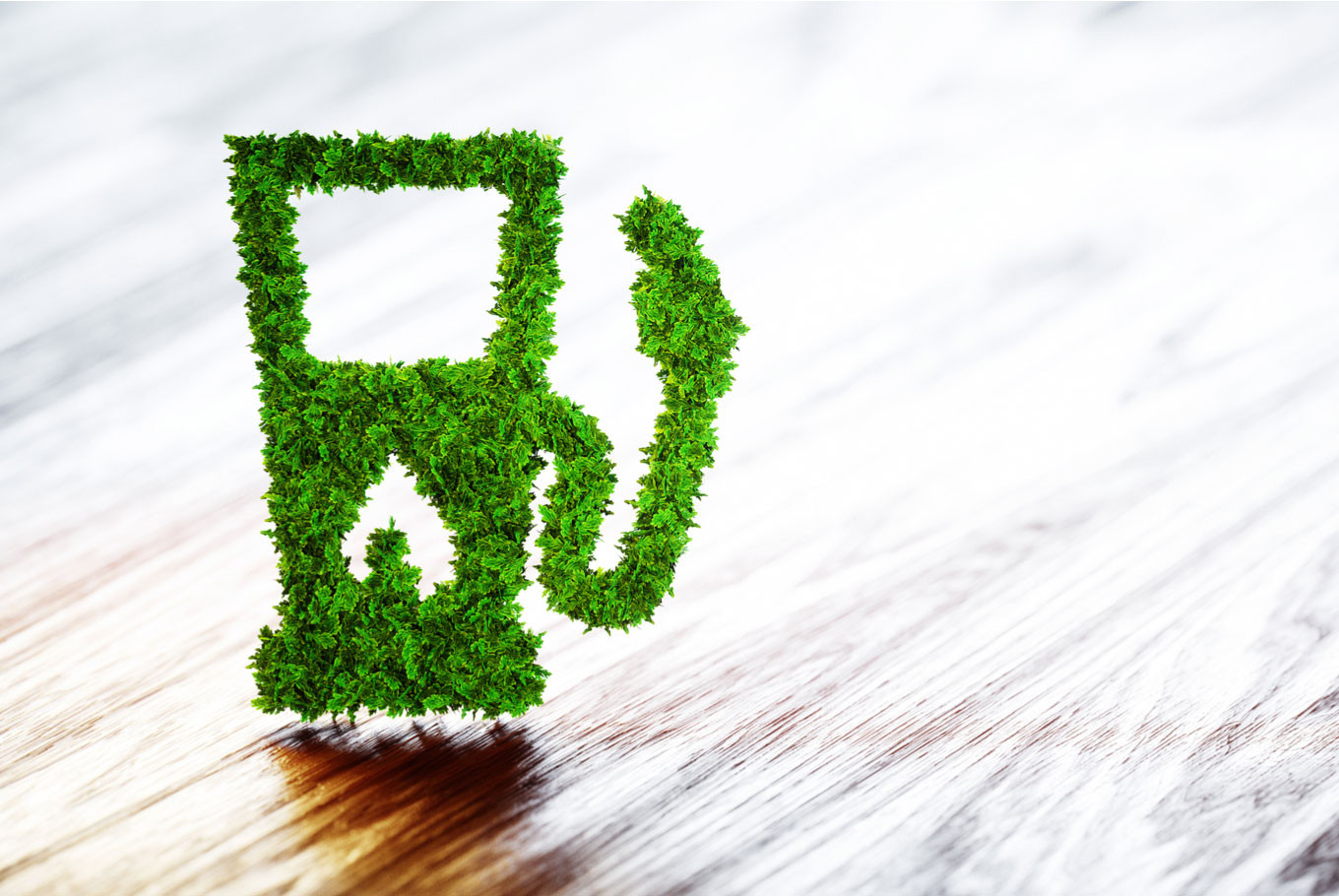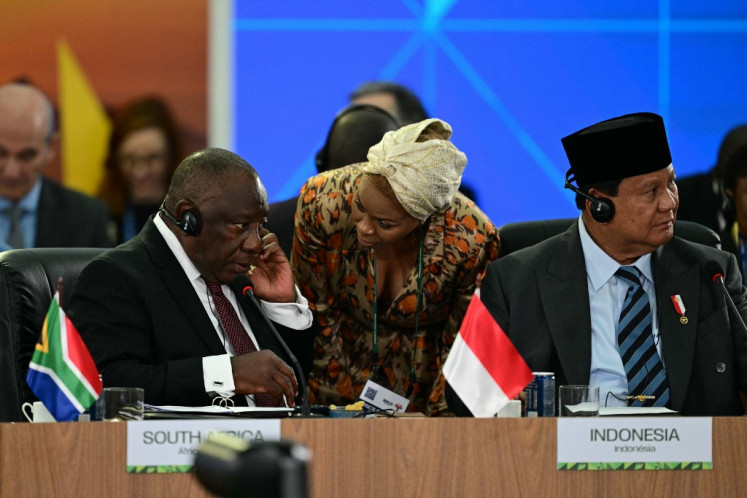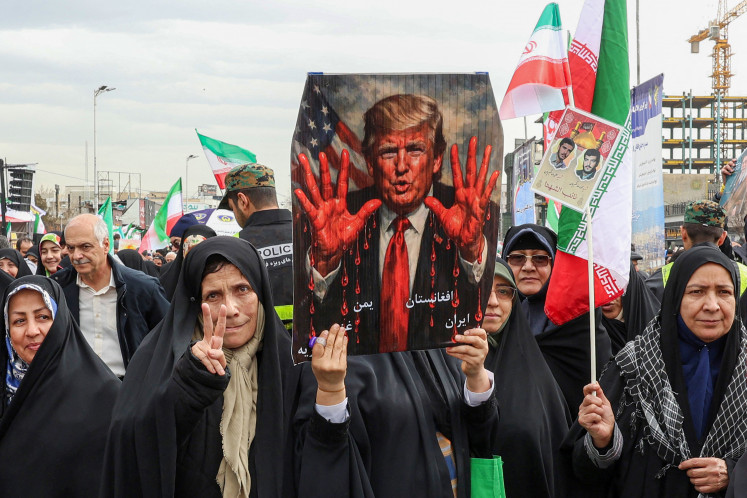Popular Reads
Top Results
Can't find what you're looking for?
View all search resultsPopular Reads
Top Results
Can't find what you're looking for?
View all search resultsGaining cleaner Indonesia with Euro 4
We have many reasons to accelerate the adoption of Euro 4, based on a 2017 regulation of the Forestry and Environment Ministry, which stipulates cleaner standards on exhaust gas emissions for new vehicles.
Change text size
Gift Premium Articles
to Anyone
F
ollowing the international climate conference in Poland last December, we are urgently required to re-evaluate Indonesia’s climate pledges.
One of our commitments was to adopt the Euro 4, a cleaner type of fuel essential to our efforts to enable every Indonesian to enjoy clean and healthy air. We have many reasons to accelerate the adoption of Euro 4, based on a 2017 regulation of the Forestry and Environment Ministry, which stipulates cleaner standards on exhaust gas emissions for new vehicles.
First, as a cleaner fuel-standard policy which defines fuel’s sulphur emission under 50 ppm, Euro 4 results in cleaner emissions than its predecessor, Euro 2. Second, our big cities have recorded air quality exceeding World Health Organization (WHO)’s standard of 25 micrograms per cubic meter of fine particulate matter (PM2.5). Even the two 2018 Asian Games’ host cities Jakarta and Palembang recorded very unhealthy 38 and 55 micrograms per cubic meter, respectively, according to the National Air Quality Monitoring.
Third, while we often consider ourselves leaders in ASEAN, Indonesia, Laos and Myanmar are the only countries in ASEAN which have not yet adopted Euro 4, according to the Indonesian Motor Vehicles Industrial Association (GAIKINDO).
Indonesia’s Euro 4 policy might meet some critical challenges. The first regards the quality of our fuel, as measured by the research octane number (RON). The higher the figure, the better quality of the fuel and the lower the emission. Currently, our refineries are likely capable for fuel specification of RON91, while Euro 4 comprises RON 92, RON 95 and RON 98 according to the regulation of the Forestry and Environment Ministry.
Second, the dilemma of greater fuel imports will be daunting to our national energy trade balance. According to the Directorate General of Oil and Gas, the demand for Euro 4-class fuel amounts to 180,000 kiloliters annually.
Therefore, combined with incapacity of our oil refineries, more imports of Euro 4, even by 100 percent, would be necessary to meet the needs. Third, older vehicles with specifications of Euro 2 and lower standards might need technical adjustments. This will result in national market and economic distortion where most cars throughout Indonesia still use Euro 2.
Nevertheless it is still urgent to support and speed up the Euro 4 policy through several measures. First, policymakers must synergize the gradual attempts towards this end. The Euro 4 policy has already received supported through a 2018 decree of the Oil and Gas Director General on the national distribution of RON98 gasoline. The decree has obliged all fuel-business enterprises to buy and sell Euro 4-class fuel products. Distribution should be mainly concentrated in specified urban areas where there are less older vehicles.
Moreover, Pertamina’s role as the national energy company remains pivotal in supporting the cleaner fuel transition to Euro 4. In its future business blueprint, Pertamina has plotted a number of its refineries for the production of Euro 4, such as the Cilacap and Dumai refineries, respectively in Central Java and Riau provinces. However, it has to develop more such refineries if we are to secure energy sovereignty.
In addition, Euro 4-class fuel price in Indonesia is the most affordable one compared to other countries. While fuel subsidies do not apply to Euro 4, Pertamax Turbo gasoline (RON 98) per liter can be purchased at Rp 12,250 ($86 US cents). In Singapore RON 98 is sold at S$2.70 ($1.99), 1.15 pound sterling in the United Kingdom and 1.87 euro ($2.13) in Italy, reportedly the world’s most expensive.
Consequently, the affordable price increases Pertamina’s strategic role in providing Euro 4 to meet the country’s needs. As a state-owned enterprise with a global brand, this is an opportunity for Pertamina to expand its business coverage in transition to Euro 4. While Pertamina increases production capacity for Euro 4, in the near future it could be exporting Euro 4 products. These will result in greater business development and more significant revenue for Pertamina as well as for the government.
Furthermore, car manufacturers in Indonesia have announced their readiness towards adapting to Euro 4, such as Toyota, Daihatsu, Suzuki and Mitsubishi. They also believe Euro 4 will become the bridge to develop more environmentally-friendly cars while increasing sales.
Moreover, vehicles produced in the recent years can use Euro 2 for standard performance and Euro 4 for their best performance. Besides, the domestic automobile market will also become more competitive, because imported European and American cars will have complied with Euro 4.
While Euro 4 in Indonesia encounters some mountainous challenges, it is an excellent way to create a cleaner and more sustainable life for Indonesians as well as to increase the added-value of our national energy industry and demonstrate our leadership in climate change mitigation.
***
The writer is a cooperation analyst at the Energy and Mineral Resources Ministry. The above views are personal.










